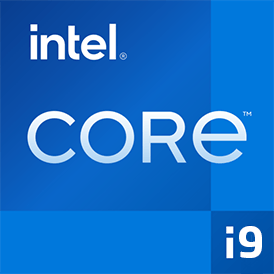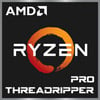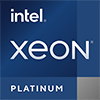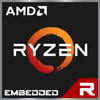
Intel Core i9-9900KS Benchmark, Test and specs
Last updated:
The Intel Core i9-9900KS has 8 cores with 16 threads and is based on the 9. gen of the Intel Core i9 series. The processor uses a mainboard with the LGA 1151-2 socket and was released in Q4/2019. The Intel Core i9-9900KS scores 1,419 points in the Geekbench 5 single-core benchmark. In the Geekbench 5 multi-core benchmark, the result is 9,471 points.

| Name: | Intel Core i9-9900KS |
|---|---|
| Family: | Intel Core i9 (78) |
| CPU group: | Intel Core i 9000 (34) |
| Architecture: | Coffee Lake S Refresh |
| Segment: | Desktop / Server |
| Generation: | 9 |
| Predecessor: | -- |
| Successor: | -- |
CPU Cores and Base Frequency
The Intel Core i9-9900KS has 8 CPU cores and can calculate 16 threads in parallel. The clock frequency of the Intel Core i9-9900KS is 4.00 GHz (5.00 GHz). The number of CPU cores greatly affects the speed of the processor and is an important performance indicator.
| CPU Cores / Threads: | 8 / 16 |
|---|---|
| Core architecture: | normal |
| Cores: | 8x |
| Hyperthreading / SMT: | Yes |
|---|---|
| Overclocking: | Yes |
| Frequency: | 4.00 GHz |
| Turbo Frequency (1 Core): | 5.00 GHz |
| Turbo Frequency (8 Cores): | 4.80 GHz |
Internal Graphics
The Intel Core i9-9900KS has integrated graphics, called iGPU for short. Specifically, the Intel Core i9-9900KS uses the Intel UHD Graphics 630, which has 192 texture shaders and 24 execution units. The iGPU uses the system's main memory as graphics memory and sits on the processor's die.
| GPU name: | Intel UHD Graphics 630 |
|---|---|
| GPU frequency: | 0.35 GHz |
| GPU (Turbo): | 1.20 GHz |
| Compute units: | 24 |
| Shader: | 192 |
| Hardware Raytracing: | No |
| Release date: | Q4/2017 |
| Max. displays: | 3 |
|---|---|
| Generation: | 9.5 |
| Direct X: | 12 |
| Technology: | 14 nm |
| Max. GPU Memory: | 64 GB |
| Frame Generation: | No |
Hardware codec support
A photo or video codec that is accelerated in hardware can greatly accelerate the working speed of a processor and extend the battery life of notebooks or smartphones when playing videos.
| h265 / HEVC (8 bit): | Decode / Encode |
|---|---|
| h265 / HEVC (10 bit): | Decode / Encode |
| h264: | Decode / Encode |
| VP8: | Decode / Encode |
| VP9: | Decode / Encode |
| AV1: | No |
|---|---|
| AVC: | Decode / Encode |
| VC-1: | Decode |
| JPEG: | Decode / Encode |
Memory & PCIeThe processor can use up to 128 GB memory in 2 (Dual Channel) memory channels. The maximum memory bandwidth is 42.7 GB/s. The memory type as well as the amount of memory can greatly affect the speed of the system. |
|
| Memory type: | Memory bandwidth: |
|---|---|
| DDR4-2666 | 42.7 GB/s |
| Max. Memory: | 128 GB |
| Memory channels: | 2 (Dual Channel) |
| ECC: | No |
| PCIe: | 3.0 x 16 |
| PCIe Bandwidth: | 15.8 GB/s |
Thermal ManagementThe thermal design power (TDP for short) of the processor is 127 W. The TDP specifies the necessary cooling solution that is required to cool the processor sufficiently. The TDP usually gives a rough idea of the actual power consumption of the CPU. |
|
|---|---|
| TDP (PL1 / PBP): | 127 W |
| TDP (PL2): | 159 W / 28 s |
| TDP up: | -- |
| TDP down: | -- |
| Tjunction max.: | 100 °C |
Technical details
The Intel Core i9-9900KS is made in 14 nm. The smaller the manufacturing process of a CPU, the more modern and energy-efficient it is. Overall, the processor has 16.00 MB cache. A large cache can greatly speed up the processor's speed in some cases such as games.
| Technology: | 14 nm |
|---|---|
| Chip design: | Monolithic |
| Socket: | LGA 1151-2 |
| L2-Cache: | -- |
| L3-Cache: | 16.00 MB |
| AES-NI: | Yes |
| Operating systems: | Windows 10, Windows 11, Linux |
| Virtualization: | VT-x, VT-x EPT, VT-d |
|---|---|
| Instruction set (ISA): | x86-64 (64 bit) |
| ISA extensions: | SSE4.1, SSE4.2, AVX2 |
| Release date: | Q4/2019 |
| Release price: | 524 $ |
| Part Number: | -- |
| Documents: | Technical data sheet |
Rate this processor
Benchmark results

The benchmark results for the Intel Core i9-9900KS have been carefully checked by us. We only publish benchmark results that have been created by us or that have been submitted by a visitor and then checked by a team member. All results are based on and fullfill our benchmark guidelines.
Screenshots:
Screenshots:
- Cinebench R23 (64GB DDR4-3200 Dual Channel), Windows 11 Home (21H2)
- Cinebench R23 (64GB DDR4-3200 Dual Channel), Windows 11
- Cinebench R23 (64GB DDR4-3200 Dual Channel), Windows 11
Cinebench 2024 (Single-Core)
The Cinebench 2024 benchmark is based on the Redshift rendering engine, which is also used in Maxon's 3D program Cinema 4D. The benchmark runs are each 10 minutes long to test whether the processor is limited by its heat generation.

|
AMD Ryzen 3 3300X
4C 8T @ 4.30 GHz |
||

|
AMD Ryzen 9 3900X
12C 24T @ 4.60 GHz |
||

|
AMD Ryzen 9 3900XT
12C 24T @ 4.70 GHz |
||
|
|
Intel Core i9-9900KS
8C 16T @ 5.00 GHz |
||

|
AMD EPYC 7773X
64C 128T @ 3.50 GHz |
||

|
Intel Core i7-1280P
14C 20T @ 4.80 GHz |
||

|
AMD Ryzen 3 3100
4C 8T @ 3.90 GHz |
||
Cinebench 2024 (Multi-Core)
The Multi-Core test of the Cinebench 2024 benchmark uses all cpu cores to render using the Redshift rendering engine, which is also used in Maxons Cinema 4D. The benchmark run is 10 minutes long to test whether the processor is limited by its heat generation.

|
Intel Xeon E5-2643 v4
6C 12T @ 3.70 GHz |
||

|
AMD Ryzen 7 PRO 4750G
8C 16T @ 4.40 GHz |
||

|
Intel Xeon E5-2680 v4
14C 28T @ 3.30 GHz |
||
|
|
Intel Core i9-9900KS
8C 16T @ 5.00 GHz |
||

|
AMD Ryzen 7 5800H
8C 16T @ 4.40 GHz |
||

|
Apple M3 (8-GPU)
8C 8T @ 4.06 GHz |
||

|
Apple M3
8C 8T @ 4.06 GHz |
||
Cinebench R23 (Single-Core)
Cinebench R23 is the successor of Cinebench R20 and is also based on the Cinema 4 Suite. Cinema 4 is a worldwide used software to create 3D forms. The single-core test only uses one CPU core, the amount of cores or hyperthreading ability doesn't count.

|
AMD Ryzen 7 5800HS
8C 16T @ 4.40 GHz |
||

|
Intel Core i7-9700K
8C 8T @ 4.90 GHz |
||

|
Intel Core i7-9700KF
8C 8T @ 4.90 GHz |
||
|
|
Intel Core i9-9900KS
8C 16T @ 5.00 GHz |
||

|
AMD Ryzen 5 5600U
6C 12T @ 4.20 GHz |
||

|
AMD Ryzen 5 3600XT
6C 12T @ 4.50 GHz |
||

|
Intel Core i3-1115G4
2C 4T @ 4.10 GHz |
||
Cinebench R23 (Multi-Core)
Cinebench R23 is the successor of Cinebench R20 and is also based on the Cinema 4 Suite. Cinema 4 is a worldwide used software to create 3D forms. The multi-core test involves all CPU cores and taks a big advantage of hyperthreading.

|
AMD Ryzen 7 7840U
8C 16T @ 3.30 GHz |
||

|
AMD Ryzen 7 8840U
8C 16T @ 3.30 GHz |
||

|
AMD Ryzen 7 PRO 6850U
8C 16T @ 2.70 GHz |
||
|
|
Intel Core i9-9900KS
8C 16T @ 4.80 GHz |
||

|
Apple M3 Pro (11-CPU 14-GPU)
11C 11T @ 3.80 GHz |
||

|
AMD Ryzen 7 PRO 6850H
8C 16T @ 3.80 GHz |
||

|
Intel Core i7-9800X
8C 16T @ 4.20 GHz |
||
Geekbench 5, 64bit (Single-Core)
Geekbench 5 is a cross plattform benchmark that heavily uses the systems memory. A fast memory will push the result a lot. The single-core test only uses one CPU core, the amount of cores or hyperthreading ability doesn't count.

|
AMD Ryzen 5 5625U
6C 12T @ 4.30 GHz |
||

|
Intel Xeon E-2288G
8C 16T @ 5.00 GHz |
||

|
Intel Xeon W-10885M
8C 16T @ 5.30 GHz |
||
|
|
Intel Core i9-9900KS
8C 16T @ 5.00 GHz |
||

|
Intel Core i5-1155G7
4C 8T @ 4.40 GHz |
||

|
Intel Core i5-1145G7
4C 8T @ 4.40 GHz |
||

|
Intel Core i5-11320H
4C 8T @ 4.50 GHz |
||
Geekbench 5, 64bit (Multi-Core)
Geekbench 5 is a cross plattform benchmark that heavily uses the systems memory. A fast memory will push the result a lot. The multi-core test involves all CPU cores and taks a big advantage of hyperthreading.

|
Intel Xeon E5-2690 v3
12C 24T @ 3.00 GHz |
||

|
Intel Xeon W-2145
8C 16T @ 4.20 GHz |
||

|
Intel Core i9-10910
10C 20T @ 3.60 GHz |
||
|
|
Intel Core i9-9900KS
8C 16T @ 4.80 GHz |
||

|
Intel Core i5-12400F
6C 12T @ 4.00 GHz |
||

|
Intel Core i5-12400
6C 12T @ 4.00 GHz |
||

|
Intel Core i9-11900H
8C 16T @ 3.60 GHz |
||
Geekbench 6 (Single-Core)
Geekbench 6 is a benchmark for modern computers, notebooks and smartphones. What is new is an optimized utilization of newer CPU architectures, e.g. based on the big.LITTLE concept and combining CPU cores of different sizes. The single-core benchmark only evaluates the performance of the fastest CPU core, the number of CPU cores in a processor is irrelevant here.

|
AMD Ryzen Threadripper PRO 3945WX
12C 24T @ 4.30 GHz |
||

|
Intel Xeon Gold 6354
18C 36T @ 3.60 GHz |
||

|
AMD Ryzen 3 PRO 5475U
4C 8T @ 4.10 GHz |
||
|
|
Intel Core i9-9900KS
8C 16T @ 5.00 GHz |
||

|
Intel Core i5-1130G7
4C 8T @ 4.00 GHz |
||

|
Intel Core i9-9900KF
8C 16T @ 5.00 GHz |
||

|
Intel Core i9-9900K
8C 16T @ 5.00 GHz |
||
Geekbench 6 (Multi-Core)
Geekbench 6 is a benchmark for modern computers, notebooks and smartphones. What is new is an optimized utilization of newer CPU architectures, e.g. based on the big.LITTLE concept and combining CPU cores of different sizes. The multi-core benchmark evaluates the performance of all of the processor's CPU cores. Virtual thread improvements such as AMD SMT or Intel's Hyper-Threading have a positive impact on the benchmark result.

|
Intel Core i7-11850H
8C 16T @ 3.60 GHz |
||

|
Intel Xeon E5-2699 v4
22C 44T @ 2.80 GHz |
||

|
Intel Xeon Gold 6244
8C 16T @ 4.00 GHz |
||
|
|
Intel Core i9-9900KS
8C 16T @ 4.80 GHz |
||

|
AMD Ryzen 5 5500GT
6C 12T @ 3.60 GHz |
||

|
Intel Core i9-11900H
8C 16T @ 3.60 GHz |
||

|
Intel Core i9-10910
10C 20T @ 3.60 GHz |
||
Cinebench R20 (Single-Core)
Cinebench R20 is the successor of Cinebench R15 and is also based on the Cinema 4 Suite. Cinema 4 is a worldwide used software to create 3D forms. The single-core test only uses one CPU core, the amount of cores or hyperthreading ability doesn't count.

|
Intel Core i7-10700K
8C 16T @ 5.10 GHz |
||

|
AMD Ryzen 7 5800HS
8C 16T @ 4.40 GHz |
||

|
AMD Ryzen 5 3600XT
6C 12T @ 4.50 GHz |
||
|
|
Intel Core i9-9900KS
8C 16T @ 5.00 GHz |
||

|
Intel Xeon E-2286M
8C 16T @ 5.00 GHz |
||

|
Intel Xeon E-2278G
8C 16T @ 5.00 GHz |
||

|
Intel Core i9-9900
8C 16T @ 5.00 GHz |
||
Cinebench R20 (Multi-Core)
Cinebench R20 is the successor of Cinebench R15 and is also based on the Cinema 4 Suite. Cinema 4 is a worldwide used software to create 3D forms. The multi-core test involves all CPU cores and taks a big advantage of hyperthreading.

|
Intel Core i7-10700K
8C 16T @ 4.90 GHz |
||

|
Intel Core i9-7900X
10C 20T @ 4.00 GHz |
||

|
Intel Xeon Platinum 8160M
24C 48T @ 2.60 GHz |
||
|
|
Intel Core i9-9900KS
8C 16T @ 4.80 GHz |
||

|
Intel Core i9-10910
10C 20T @ 3.60 GHz |
||

|
Intel Core i7-1280P
14C 20T @ 3.00 GHz |
||

|
Intel Core i9-9920X
12C 24T @ 4.30 GHz |
||
iGPU - FP32 Performance (Single-precision GFLOPS)
The theoretical computing performance of the internal graphics unit of the processor with simple accuracy (32 bit) in GFLOPS. GFLOPS indicates how many billion floating point operations the iGPU can perform per second.

|
AMD A8-3800
AMD Radeon HD 6550D @ 0.60 GHz |
||

|
Qualcomm Snapdragon 820
Qualcomm Adreno 530 @ 0.62 GHz |
||

|
Qualcomm Snapdragon 821
Qualcomm Adreno 530 @ 0.62 GHz |
||
|
|
Intel Core i9-9900KS
Intel UHD Graphics 630 @ 1.20 GHz |
||

|
Intel Core i9-10880H
Intel UHD Graphics 630 @ 1.20 GHz |
||

|
AMD Ryzen Embedded R2312
AMD Radeon RX Vega 3 (Raven Ridge) @ 1.20 GHz |
||

|
AMD Ryzen 3 5125C
AMD Radeon RX Vega 3 (Raven Ridge) @ 1.20 GHz |
||
Estimated results for PassMark CPU Mark
Some of the CPUs listed below have been benchmarked by CPU-monkey. However the majority of CPUs have not been tested and the results have been estimated by a CPU-monkey’s secret proprietary formula. As such they do not accurately reflect the actual Passmark CPU mark values and are not endorsed by PassMark Software Pty Ltd.

|
Intel Xeon E5-2695 v4
18C 36T @ 2.50 GHz |
||

|
AMD Ryzen 5 5500
6C 12T @ 3.60 GHz |
||

|
AMD EPYC 7252
8C 16T @ 3.20 GHz |
||
|
|
Intel Core i9-9900KS
8C 16T @ 4.80 GHz |
||

|
Intel Core i5-12400F
6C 12T @ 4.00 GHz |
||

|
Intel Core i5-12400
6C 12T @ 4.00 GHz |
||

|
AMD Ryzen 5 PRO 5645
6C 12T @ 3.70 GHz |
||
Blender 2.81 (bmw27)
Blender is a free 3D graphics software for rendering (creating) 3D bodies, which can also be textured and animated in the software. The Blender benchmark creates predefined scenes and measures the time (s) required for the entire scene. The shorter the time required, the better. We selected bmw27 as the benchmark scene.

|
Intel Core i9-7900X
10C 20T @ 4.00 GHz |
||

|
Intel Core i9-9920X
12C 24T @ 4.30 GHz |
||

|
AMD Ryzen Threadripper 2920X
12C 24T @ 3.60 GHz |
||
|
|
Intel Core i9-9900KS
8C 16T @ 4.80 GHz |
||

|
Intel Core i9-9820X
10C 20T @ 4.00 GHz |
||

|
AMD Ryzen Threadripper 1920X
12C 24T @ 3.60 GHz |
||

|
AMD Ryzen 7 4700G
8C 16T @ 4.00 GHz |
||
CPU-Z Benchmark 17 (Multi-Core)
The CPU-Z benchmark measures a processor's performance by measuring the time it takes the system to complete all benchmark calculations. The faster the benchmark is completed, the higher the score.

|
Intel Core i7-11700KF
8C 16T @ 3.60 GHz |
||

|
Intel Core i9-7920X
12C 24T @ 2.90 GHz |
||

|
Intel Xeon E5-2698 v3
16C 32T @ 2.30 GHz |
||
|
|
Intel Core i9-9900KS
8C 16T @ 4.00 GHz |
||

|
Intel Core i7-6950X
10C 20T @ 3.00 GHz |
||

|
Intel Core i9-10900X
10C 20T @ 3.70 GHz |
||

|
Intel Core i7-11700
8C 16T @ 2.50 GHz |
||
Cinebench R15 (Single-Core)
Cinebench R15 is the successor of Cinebench 11.5 and is also based on the Cinema 4 Suite. Cinema 4 is a worldwide used software to create 3D forms. The single-core test only uses one CPU core, the amount of cores or hyperthreading ability doesn't count.

|
Intel Core i7-10700K
8C 16T @ 5.10 GHz |
||

|
Intel Core i7-10700KF
8C 16T @ 5.10 GHz |
||

|
AMD Ryzen 5 PRO 6650U
6C 12T @ 4.40 GHz |
||
|
|
Intel Core i9-9900KS
8C 16T @ 5.00 GHz |
||

|
AMD Ryzen 5 5500
6C 12T @ 4.20 GHz |
||

|
AMD Ryzen 7 3800XT
8C 16T @ 4.70 GHz |
||

|
AMD Ryzen 9 3900XT
12C 24T @ 4.70 GHz |
||
Cinebench R15 (Multi-Core)
Cinebench R15 is the successor of Cinebench 11.5 and is also based on the Cinema 4 Suite. Cinema 4 is a worldwide used software to create 3D forms. The multi-core test involves all CPU cores and taks a big advantage of hyperthreading.

|
AMD Ryzen 7 3800XT
8C 16T @ 4.50 GHz |
||

|
Intel Xeon E5-2690 v4
14C 28T @ 3.00 GHz |
||

|
Intel Xeon Gold 6136
12C 24T @ 3.30 GHz |
||
|
|
Intel Core i9-9900KS
8C 16T @ 4.80 GHz |
||

|
Intel Core i9-7900X
10C 20T @ 4.00 GHz |
||

|
AMD EPYC 7351
16C 32T @ 2.90 GHz |
||

|
AMD EPYC 7351P
16C 32T @ 2.90 GHz |
||
Benchmarks

Cinebench 2024 (SC)
272 entries
272 entries

Cinebench 2024 (MC)
271 entries
271 entries

Cinebench R23 (SC)
586 entries
586 entries

Cinebench R23 (MC)
565 entries
565 entries

Geekbench 5 (SC)
2,488 entries
2,488 entries

Geekbench 5 (MC)
2,461 entries
2,461 entries

Geekbench 6 (SC)
1,755 entries
1,755 entries

Geekbench 6 (MC)
1,703 entries
1,703 entries

Cinebench R20 (SC)
656 entries
656 entries

Cinebench R20 (MC)
604 entries
604 entries

FP32 SP (iGPU)
2,042 entries
2,042 entries

3DMark Timespy (iGPU)
516 entries
516 entries

PassMark CPU-Mark
2,392 entries
2,392 entries

Blender 2.81 (bmw27)
190 entries
190 entries

CPU-Z Benchmark 17 (MC)
733 entries
733 entries

Monero Hashrate
94 entries
94 entries

V-Ray CPU-Render
249 entries
249 entries

Cinebench R15 (SC)
1,106 entries
1,106 entries

Cinebench R15 (MC)
1,101 entries
1,101 entries

Geekbench 3 (SC)
942 entries
942 entries

Geekbench 3 (MC)
938 entries
938 entries
Popular comparisons
back to index




